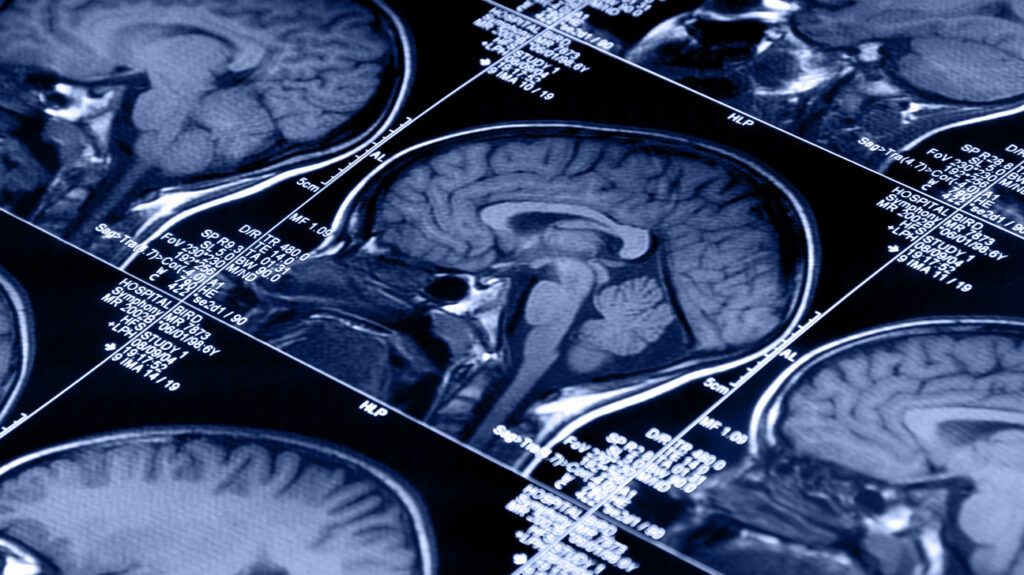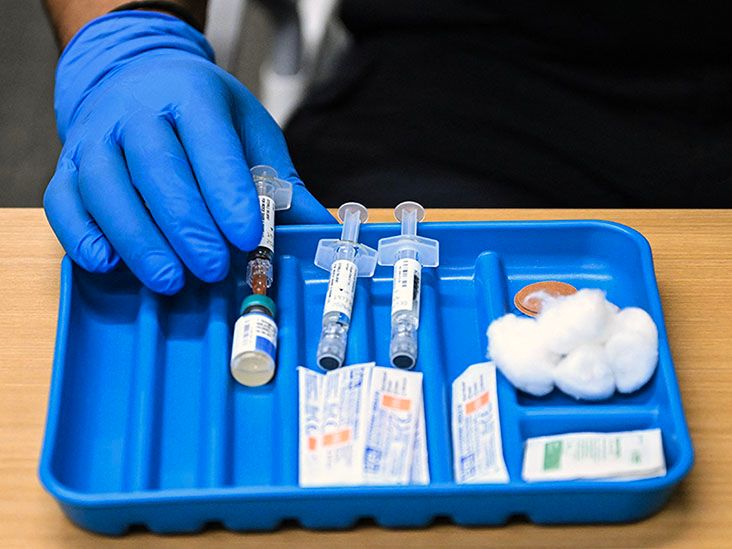Temporal lobe attention deficit disorder (ADD) is not a recognized medical condition. Some doctors and clinics claim that it is one of seven subtypes of attention deficit hyperactivity disorder (ADHD).
Proponents of the concept say that temporal lobe ADD involves difficulties with learning, memory, and controlling one’s temper. However, these are established features of ADHD.
Difficulty remembering things and regulating intense emotions are common experiences for people with ADHD. There is no evidence to suggest that these symptoms represent a distinct subtype.
People should be wary of companies claiming that they can diagnose or treat temporal lobe ADD.
Read on to learn more about temporal lobe ADD, including the proposed symptoms, causes, and treatment.

According to some doctors and private clinics, temporal lobe ADD is a subtype of ADHD. They argue that this type of ADHD specifically affects the temporal lobe of the brain, which plays a role in processing memories, emotions, and sounds.
Proponents of this theory say that temporal lobe ADD occurs due to overactivity, underactivity, or damage in this part of the brain. However, there is no scientific evidence to support the existence of this condition.
“ADD” is an outdated term for what experts now call ADHD. ADHD occurs because of differences in how the brain develops and functions from a young age. Scientists are still learning about the potential causes.
What are the seven types of ADHD?
Some people claim that temporal lobe ADD is one of seven ADHD subtypes:
- classic ADD
- inattentive ADD
- overfocused ADD
- temporal lobe ADD
- limbic ADD
- ring of fire ADD
- anxious ADD
There are no studies on most of these proposed subtypes. Most psychologists only recognize three types of ADHD:
- Combined type: This refers to ADHD with both inattentive and hyperactive features. It appears to be similar to “classic ADD.”
- Inattentive type: This involves more distractibility and less hyperactivity and impulsivity. This is similar to the idea of “inattentive ADD.”
- Hyperactive/impulsive type: This involves more hyperactivity and impulsivity and less distractibility.
The scientific community does not recognize temporal lobe ADD as a distinct medical condition.
Although there is some evidence to suggest that ADHD may affect the temporal lobe, there is not enough to draw firm conclusions or to suggest that there is a specific subtype of ADHD that mainly affects this part of the brain.
For example, a 2020 study found changes in parts of the temporal lobe in boys with ADHD. However, the study showed general changes that applied across the group, not only to a specific subset.
Additionally, the study was small, involving only 40 children across a range of ages. The researchers say that more studies are necessary to investigate how ADHD affects the temporal lobe.
There is no research on temporal lobe ADD specifically. As a result, there is also no evidence pointing to causes.
However, the clinics that talk about temporal lobe ADD often mention a range of possible causes, such as:
- genetics
- exposure to certain chemicals
- brain damage
- processed foods
- video games
- a lack of physical activity
Genetics are a contributing factor in ADHD. For example, ADHD has a heritability of 80%, suggesting a strong genetic link.
However, the role that toxins, pollution, or brain damage may play in ADHD is an area of ongoing research.
Although some studies have observed an increase in ADHD-like symptoms following traumatic brain injuries (TBIs), a 2021 meta-analysis of past research found that this link only applied to severe TBIs, not mild or moderate injuries.
Importantly, it is unlikely that video games, inactivity, or processed foods directly cause ADHD, according to the Attention Deficit Disorder Association (ADDA). Some people may find that video games make it harder to focus on other activities, but this does not mean that they cause ADHD.
Proponents of temporal lobe ADD say that it causes a range of symptoms, including:
- memory difficulties
- seeming “spaced out” or confused
- emotional sensitivity
- mood instability or difficulty regulating emotions, especially anger
- aggression
- anxiety or panic
- learning disabilities
- difficulty with auditory processing
- paranoia
- hallucinations
- thoughts of self-harm
Many of these symptoms are either already included in the definition of ADHD or could represent common conditions that often coexist with ADHD.
For example, difficulty with memory and focus are hallmark signs of ADHD, according to ADDA. Sensitivity to rejection and difficulty regulating emotions are also common experiences for those with this diagnosis.
Furthermore, a 2019 review notes that there is evidence to suggest that anxiety, learning disabilities, behavioral disorders, and depression are all more common in those with ADHD. There is also some evidence to suggest that people with ADHD may process sounds differently than others.
The more distinctive alleged symptoms — such as paranoia, hallucinations, or thoughts of harming oneself or others — are not typical for ADHD and are symptoms of serious mental distress. They require support from qualified mental health professionals.
No research shows that these symptoms often occur simultaneously in a significant number of people.
Proponents of temporal lobe ADD claim that a variety of treatments can help with it. Depending on the source, they may suggest:
- dietary changes, such as eating more protein or healthy fats
- regular exercise
- behavioral therapy
- herbal supplements
Behavioral therapy, as well as other types of psychotherapy, are established treatments for ADHD. Anecdotally, many people also report that exercise and a balanced diet help with their ADHD.
However, it is important to note that these are support strategies, not cures. If a person has some of the more serious symptoms that people claim are part of temporal lobe ADD, they need professional mental health support.
Attempting to treat ADHD with herbal supplements can be risky. Similarly to medications, they can still affect brain function and chemistry, and they may have side effects — especially for children or those already taking other medications or supplements.
A 2022 review of the use of herbs for ADHD concludes that “there is not enough data to establish that herbal remedies are very effective as complementary and alternative medicines (CAM) for minors affected by ADHD.”
Anyone who thinks that they or their child might have ADHD should try to speak with a mental health professional who is qualified to carry out an ADHD assessment.
This can provide people with an official diagnosis, which may allow them to access support.
If an adult or child has more serious symptoms, it is important to seek help as soon as possible. Symptoms of more severe distress include:
- frequent, unexplained panic attacks
- symptoms of severe depression, such as not eating, sleeping more or less often, and withdrawing from others
- symptoms of self-harm or abuse, such as scars or cuts on the skin
- destructive or aggressive behavior
- talking about ending their life
Help is out there
If you or someone you know is in crisis and considering suicide or self-harm, please seek support:
- Call or text the 988 Lifeline at 988 or chat at 988lifeline.org. Caring counselors are available to listen and provide free and confidential support 24/7.
- Text HOME to the Crisis Text Line at 741741 to connect with a volunteer crisis counselor for free and confidential support 24/7.
- Not in the United States? Find a helpline in your country with Befrienders Worldwide.
- Call 911 or your local emergency services number if you feel safe to do so.
If you’re calling on behalf of someone else, stay with them until help arrives. You may remove weapons or substances that can cause harm if you can do so safely.
If you’re not in the same household, stay on the phone with them until help arrives.
There are no studies showing that temporal lobe ADD exists or that it has distinct symptoms and causes.
“ADD” is an outdated term for ADHD. Scientists are still learning about what causes ADHD and how it affects the brain. ADHD may affect the temporal lobe, but more research on this is necessary to learn more.
People who are interested in getting an assessment for ADHD can speak with a doctor or mental health professional for advice.
If a person has severe symptoms, such as symptoms of depression or aggressive behavior, do not hesitate to seek specialist support.


